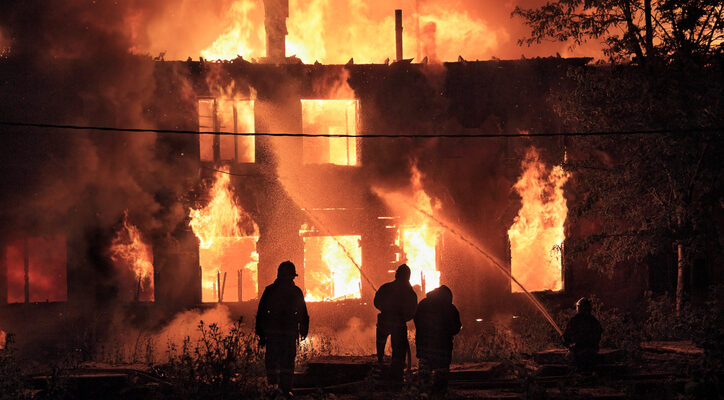Fire hazards are a serious risk for self-storage units. While most clients are responsible unit renters, there are some that might not be so attentive when regarding safety. Protecting tenants belongings from fire hazards is a key tenant of fire safety for self-storage owners. Letting your clients know the risks and supplying them with information to prevent fires is critical when renting units to individuals.
Spotting fire hazards
Fires can start in many ways. Some fires are started by natural causes such as lightning, but most fires are started by people. Self-storage operators need to post signs notifying tenants of potentially hazardous materials that are prohibited from being stored inside their units. These materials include flammable liquids, chemicals and gas-powered tools.
Operators should also inform their clients about inspection processes and encourage them to carefully observe the storage facility’s landscaping and maintenance. Self-storage operators who do not take the time to perform regular maintenance may not be observant about looking out for potential fire hazards.
Preventing fires
When renting out units to clients share a few fire precautions:
- It may make financial sense for a person to rent out a small storage unit but overcrowding can become a potential fire hazard.
- Explain to the client the need for a larger space when necessary to prevent any hazards from taking place.
- Paper items, photographs and important documents should be store in a fire-proof safe.
- If the storage unit is equipped with a sprinkler system, discuss the potential damage that can be caused to items in cardboard boxes and furniture in the instance the sprinkler system is activated.
- Show your clients where the fire extinguishers are located on your property. Extinguishers should be located within 75-feet on the unit for quick and easy access in case of a fire emergency.
- The fire extinguishers should be ABC models capable of putting out most basic fires.
Discuss with the client the fire prevention protocols you have in place within your units. Smoke detectors, heat monitors, alarms and lighting should all be pointed out during the initial meeting with the client.
Knowing the fire risks
Self-storage facilities do not provide insurance for their client’s items. Clients need to provide their own insurance when renting storage units in the event of damage resulting from a fire. Self-storage facility owners need to speak with their clients annually to review their insurance policy and ensure they have the correct coverage to protect their items. If available, self-storage operators should advise their tenants to purchase insurance available through the storage unit facility.
Fires can start quickly and unexpectedly. Knowing the fire risks and how to prevent fires at your storage facility is essential in keeping clients and their belongings safe. Have your facilities inspected annually by a professional fire inspector to ensure you are following federal fire safety guidelines and that your facility is up to code.
Author:
Chad Connor is the Owner of Affordable Fire & Safety, LLC in Gilbert, Arizona with almost 30 years of experience as a fire inspector.

